Grove City, PA. Paul Kingsnorth is well-known within FPR circles, and I was thrilled when he agreed to let me interview him on some topics of perennial interest to Porchers. In case you’re not familiar with his work, though, here’s a bit of background: Kingsnorth cut his teeth as an environmental activist in the UK, and his work combating corporate capitalism and climate destruction took him around the world. In 2009 he co-founded the Dark Mountain Project, and soon thereafter he began publishing poetry and fiction. (FPR ran two review essays about his Buckmaster Trilogy this spring.) Penguin asked him to introduce and edit a collection of Wendell Berry’s essays for a UK audience. The result was The World-Ending Fire, which is a fine introduction to Berry’s thinking. Kingsnorth now lives with his family on a small farm in the west of Ireland. This year he was received into the Eastern Orthodox Church; his essay describing his circuitous and surprising religious path is the most important essay I’ve read this year. His current writing project, The Abbey of Misrule, is a fascinating series of essays diagnosing the origins and effects of technological modernity and investigating how we might reclaim a human-scale world. Read on to hear more from Kingsnorth about these themes.
Jeffrey Bilbro: Sometimes people emphasize particular postures as universally prescriptive: everyone needs to be an environmental activist! Everyone needs to withdraw to the land and homestead! You’ve cycled through a variety of stages in your life and work, but I wonder what you’ve learned about healthy dynamics of withdrawal and engagement, contemplation and action? For instance, you’re a writer, but you wrote nothing for a whole year.
Paul Kingsnorth: I have thought about this issue of the ‘universal prescription’ for years. Certainly when I was a young green activist in the 1990s this was what everyone was up to – including me. It was like working on a kind of giant intellectual puzzle: if only we can get the world figured out, we can make a plan for how it should all work! I would say this is still very much the mainstream approach in the West, and I do think it is a very Western one. We have a tendency here to want to figure the world out – to ’solve’ it, as if we had the ability or the right do that. Maybe this is really what the modern West is: a culture which wants to solve the world.
Recently I was reading the historian Christopher Dawson’s Religion and the Rise of Western Culture. Dawson’s suggestion is that the West’s version of Christianity was the impetus behind this ongoing missionary zeal. He wrote: ‘The other great cultures realized their synthesis between religion and life, and then maintained their Sacred Order. But in the West the changing of the world became an integral part of its cultural ideal.’ I think we can see this applied today to, say, ’saving the world’ from climate change, just as it used to be applied to spreading the gospel to the pagans, or ‘developing’ non-Western countries in accordance with our values.
These days I feel like I’ve come late to the realisation that we—and maybe this is especially true of the USA—are essentially a missionary society. We can see this most obviously at the moment in the zeal for iconoclastic ‘social justice’ activism. This seems far more of a religious than a political movement, and a fundamentalist one at that. It smacks of the kind of puritanism we saw in England after the Civil War, right down to the toppling of statues and the desire to build the New Jerusalem on the bones of the corrupt former regime.
I think I’ve always had to struggle with an internal tension between the part of me that wants to ‘change the world’ and the part of me that has always known that this is a species of pride, and that the first work is changing yourself. Though of course that’s much harder. In the old fairytales there’s always a balance to be had between the time spent in the forest, or up on the mountain—which is the mystical, liminal zone—and the time spent in the city or the village, which is the everyday, material world. Both are needed, but in the right balance. These days, it seems to me that there is a huge surplus of action but a void of contemplation, and that this point towards what we really need now.
Then again, by writing ‘what we really need’ there, I am falling into the trap again! I obviously have enough of the puritan in me to make this an ongoing tussle.
JB: Through your introduction to The World Ending Fire, you’ve played a role in introducing the work of Wendell Berry to an audience in the UK and Ireland. What is your sense of Berry’s reputation across the pond, and what differences do you see between his agrarianism and the agrarian voices there, people such as James Rebanks, for instance?
PK: In some circles—thoughtful greens, localists, bloody-minded distributists, people who have read Ivan Illich or E. F. Schumacher—Berry has always been well-respected and influential. More broadly, he’s not well known, so I was heartened when Penguin asked me to put together a UK version of his essays—the first, I think—and I was even more heartened to see that it appears to be selling. Berry of course is a stubborn particularist, which means that his voice is not only very American but also very Kentuckian, and maybe even very Port Royal-ian. That might limit his appeal to some degree. Having said that, he has some influential British admirers, and his message is universal (as all particularism is.)
Agrarianism in Britain is not really a living tradition. As the first nation to be industrialised (whether we liked it or not), we were the first nation to lose contact with the land and its folkways, and I trace a lot of Britain’s current woes back to that loss. Because Britain doesn’t have a strong land-based culture or economy—even compared to other modern European nations like Ireland, where I live, or France—agrarianism is unable to manifest itself politically. Culturally, the UK is almost entirely the preserve of hyper-globalised London-based elites, who regard the politics of land as fey romanticism at best and dangerous nativism at worst.
On the other hand, the mass of the population have a kind of inexplicable yearning for land and place, it seems to me, which manifests in a love of gardening and a lot of bad historical TV drama. And we have always had a dissident strain of radical agrarian writers and activists, from William Cobbett through Chesterton and Belloc right down to people writing today, like James Rebanks and Simon Fairlie, who share Berry’s understanding that left and right are much less meaningful divisions than landed and landless.
JB: Like Wendell Berry, you write in multiple genres. What can you say in poetry or fiction that you can’t say in your essays?
PK: I think Wendell wrote somewhere that he writes essays out of despair, fiction out of nostalgia and poetry out of love. I may have got that wrong, but since he doesn’t own a computer hopefully he won’t notice. Anyway, it’s a good pointer towards the way that form directs content. I’m currently writing a series of regular essays on Substack, trying to get to the bottom of our current malaise, and the dominance of the technological society that is rising up to claim us. I’m enjoying it, but it’s head work. Sometimes I long to write a poem; poems are heart work. They come from the soul in a way that essays don’t. Fiction, on the other hand, can tell stories in a way that those other forms can’t manage.
Having said all that, it hasn’t escaped my attention that all my writing, in whatever form, is basically just a reiteration of the same story, which seems to be the only one I’m capable of telling: human-scale life versus the Machine culture that is overwhelming it.
JB: Berry writes about his different motives in a few places. In a 1994 Sabbath poem he puts it this way:
I would not have been a poet
except that I have been in love
alive in this mortal world,
or an essayist except that I
have been bewildered and afraid,
or a storyteller had I not heard
stories passing to me through the air,
or a writer at all except
I have been wakeful at night
and words have come to me
out of their deep caves,
needing to be remembered.
He concludes, though, that “on the days I am lucky / or blessed, I am silent.” So maybe silence or contemplation is a fourth and most-necessary genre.
Speaking of fiction, though, the Wayland myth is a constant thread running through your three novels. What drew you to this story? How do you see it as instructive for our time? I have some thoughts about this, but I’d be interested to hear you reflect on why this myth resonates so deeply with you.
PK: I love the notion of contemplation as a genre. There is something very important in that idea. In some ways, I think this is what I was trying to do in my 2019 book Savage Gods. That was a slim, strange book that I wrote by accident, and it turned into a long enquiry into the meaning of writing itself. I was trying to get to the heart of how words can block us from reality as well as sometimes illuminating it. What do you do when words become a wall, rather than a door? I had got to the point where I felt that writing was cutting me off from the world, rather than folding me into it. I stopped writing for nearly two years because of it. I often feel today, with the millions of words being belched forth from the web hourly, that this is what has happened to us all. We just talk too much. St Gregory of Nyssa once wrote: ‘Ideas create idols. Only wonder leads to knowing.’ I think words can create idols too. That’s a problem for a writer.
As for your Wayland question: it’s a good one, but I’m not sure I have an answer. I would like to hear yours. Wayland was a magical smith, a key figure in Anglo-Saxon mythology, and he emerged as a character in my first novel The Wake, almost unbidden. I didn’t plan for that to happen, but his voice took over in the writing and he’s appeared in all my fiction since. In some ways he is the essence of a very ancient, dark strain of the English imagination. But I think he is doing something with me which I’m probably not aware of. I think that writers only tell their stories, they don’t create them.
JB: I would urge readers to pick up your Buckmaster Trilogy for themselves to see how this myth resonates through the stories. I’ll just say that the story of Wayland the smith can be read as a warning about the dangers of treating living creatures as mere machines to do our bidding. When we use other creatures as tools to satisfy our appetites, they will have their revenge. And as the myth suggests, it may be our children who will pay the ultimate price for our greed.
Yet along with their critiques of King Nithad-esque greed, your novels also dramatize the dangers that accompany the Wayland-like quest for revenge: it is all too easy for those who aim to oppose the machine to end up mirroring its methods and violence. Buccmaster, for instance, ends up reflecting the evils of the Norman invaders more than he would like to admit. You’ve wrestled with this challenge in regard to today’s environmental movement and our political options. As you write near the end of “The Cross and the Machine,” we have “two profane visions going head-to-head, when what we are surely crying out for is the only thing that can heal us: a return to the sacred center around which any real culture is built.” How might we step out of the internecine conflict that dominates today’s discourse and imagine and practice the more radical, genuine alternative we need?
PK: I came across a quote from Aldous Huxley recently: ‘No man can concentrate his attention upon evil, or even upon the idea of evil, and remain unaffected. To be more against the devil than for God is exceedingly dangerous. Every crusader is apt to go mad. He is haunted by the wickedness which he attributes to his enemies; it becomes in some sort a part of him.’ I can identify with that personally – and again, it’s not a bad picture of the direction a lot of the culture is going in in these apocalyptic times.
Politics is such a dead end. The culture war is like a fight to the death between two people who are so blinded by blood and adrenaline that they can’t even see each other any more, let alone remember what they’re fighting about. More and more at present I feel like I’m living inside a kind of giant hallucination—or maybe a Spectacle, as the Situationists labelled it perceptively, decades back. There are points in time at which whole cultures can become possessed. I mean that literally. There is something weirdly, unnervingly demonic going on at the moment, and it is not going to end well. I know that this is worse in America than it is where I live, but to different degrees it is overcoming the whole of the West.
I don’t think that we (there I go again) need any more battles over politics or culture, at least at the level at which they are currently happening. Both of those things are a product of whatever sacred vision a people has. The cult is the heart of the culture. But we have no sacred vision anymore, we only have our little selves, which we work so hard to please and puff up. I think we have turned away en masse from any notion that there might be anything higher than us, and it is driving us literally mad. No culture can survive like this.
One thing strikes me very strongly at the moment: that whatever peoples’ politics, or whether they even consider themselves to have politics, everyone seems to agree that the West is broken. Nobody thinks our countries are working properly. We can argue forever about the cause of the breakage, and we can choose which tribe to blame, but we can all see that our culture – if it even counts as a culture – is rotting from within. No leader or law or ideology or street protest is going to fix that. I think there is a spiritual crisis right down at the core of who we are, and we had better start taking it seriously on a spiritual level.
JB: In Life is a Miracle, Wendell Berry writes “It is easy for me to imagine that the next great division of the world will be between people who wish to live as creatures and people who wish to live as machines.” Imagination, the capacity to see how things might be otherwise, seems vital to our ability to find better ways of living together. What are some ways that we can cultivate and renew a creaturely imagination in a machine age?
PK: I’m trying to work out what some answers to that might be in the essays I’m writing at the moment. I suspect that the conclusions won’t add much that’s new to what I’ve been saying for years, which in itself is not very new either. I’m better at diagnosing problems than proposing solutions, which is probably a fault of mine. On the other hand, I also have a suspicion that people like me – Generation X – and maybe all of us around today, are not the people who can forge new ways of being. We are products of the old, failing ones. The West is in a kind of Pregnant Widow moment at present. All the structures are failing: the old world is visibly dying, but there’s no sign yet of what the new one will look like. We can perhaps dimly see what’s needed, but it will take future generations, as the machine really starts to crumble, to start living differently.
I think that for now Berry’s imaginative capacity to understand other ways of being should be cultivated everywhere; we should be telling stories we believe in, instead of the official stories of the age, which nobody who is paying attention believes in at all. None of your readers need me to tell them that the useful work is practical, particular, small and careful: to get away from screens as much as we can, get close to the woods, get close to God, get close to real community. All of the small, old things. Build networks of grounded reality that are not entangled in the wires of the technium. Forge independence.
And at the same time, refuse to say things you know not to be true. Refuse to tell the stories of progress and growth and breakdown disguised as liberation. Refuse to give your allegiance to the Machine. Refuse to lie. I’m talking about a kind of spiritual secession.
JB: One of the themes in Alexandria is the limitation of the stories we tell to make sense of the world. Sometimes we need to “let go of [our] story” or “abandon maps” to encounter the truth of reality. Yet at the same time you’ve written powerfully about how Christianity became “the one story” that could make sense of your experience. I won’t ask you to rehash your essay in First Things on your conversion, but what do you think sets the Christian story apart from the other narratives we rely on to navigate the world?
PK: Related to your last question, perhaps abandoning maps is also part of the work at the moment. That is to say, letting go of old stories that don’t serve us; even if we’re very attached to them. There really is no going back, whatever it is that you might want to go back to. I’m capable of being very nostalgic about all sorts of lost things, but if you try to turn that into politics you’re in trouble.
We have some kind of fire to walk through together. There’s a single phrase that rings through all of my novels, very deliberately; something is coming. And there’s another one: all is broke. What I’ve felt for years about the times we’re living in is as simple and vague and useless as that. All is broke, and something is coming. I don’t know what it is, but it’s upending everything.
As for Christianity: well, that certainly upended everything for me. I never wanted or expected to become a Christian, let alone an Eastern Orthodox Christian, which is what ended up happening to me this year. But God seems to have a sense of humour! I think a lot of things set the Christian story apart of course – mainly the story of God manifested in human form, perfecting strength through weakness. That’s been the world-changing tale, and still is. And the mystical heart of Orthodoxy, which still beats strongly, is a unique thing. Not unconnected in many ways from the approaches of some other faiths, but entirely of itself as well. I have a lifetime to learn from it. I can only say that I was dragged into this—I didn’t choose it—and so I can’t really rationalise why it happened. But already the world makes more sense.
JB: The fact that you found a spiritual home in Eastern Orthodoxy reminds me of another Orthodox Englishman who wrote profoundly about modernity and creation: Philip Sherrard. I haven’t seen you refer to Sherrard, though maybe I’ve just missed it, but he seems to have been a forerunner in the kind of work you’re doing now. He and the group he was part of, Temenos, also played a role in helping Berry find the language needed to rightly tell the story of how spirit and matter relate. As he writes in The Rape of Man and Nature, “The physical world, regarded as so much dead stuff, becomes the scene of man’s uncurbed exploitation for purely practical, utilitarian or acquisitive ends…. This is why the application of science–which is not really the application of science at all but the application of an unbelievable ignorance–has produced such disequilibrium, ugliness and even destruction not only in the natural world but in human life as well. Paradoxical as it may seem, through our attempt to achieve a knowledge of the world based on the observation of the physical phenomena of this world we have reduced ourselves to a chronic state of blindness.” Whether or not Sherrard has served this role for you, I’m interested in who are the guides you look to in seeking to prepare for the unknown something that is coming?
PK: Funnily enough, I did recently read The Rape of Man and Nature, and I quoted from it a bit in a recent essay about science, and the ideologies tangled up in it. I share Sherrard’s deep scepticism – well, antipathy, if I’m honest – of both science and its child, technology. Other guides I like include Schumacher, Illich, Ellul, Chesterton, Gandhi and Tolstoy. To move a bit further forward in time, I’d maybe offer Edward Abbey, Annie Dillard, Simone Weil, Robert Bly and John Moriarty.
But maybe I should be moving back in time, because these days I find more inspiration in the saints than anyone else. So on the grounds that, as C. S. Lewis put it, ‘all that is not eternal is eternally out of date,’ I’d probably point to St Julian of Norwich, St Porphyrios, St Maximos the Confessor, The Way of a Pilgrim or Unseen Warfare. There is more truth in a few pages of each than in most of what I’ve ever written.
The other vital guide is the sun and wind and soil. I spend far too much time thinking and writing when I should be out getting my hands dirty.
JB: This question might not be a fair one, but do you have any inklings yet of how your membership in the Christian church might inflect your writing? I’m particularly interested in how it might shape the stories that you find necessary to tell. But maybe you are interested in that as well, and only time will tell which stories grab you by the collar, as it were, and demand to be told.
PK: It’s a very good question, and I wonder it as well. I’ve been talking to a few other Christian writers and artists recently about the same thing. I think maybe there is a difference between a writer who is a Christian and a Christian writer. In a way, trying to produce ‘Christian writing’ or any kind of ‘Christian’ art or music is to set yourself up to fall into the abyss of agitprop. It’s a hard abyss to avoid, which is why there are so few good protest songs or funny political comedians. But there are great writers and artists. who are Christian who wear it lightly but with truth. Tarkovsky comes to mind, or Dostoyevksy. My favourite recent example is the novelist Eugene Vodolazkin’s book Laurus. I’ve just noticed that all my examples are Russian! Maybe I need to visit and learn something.

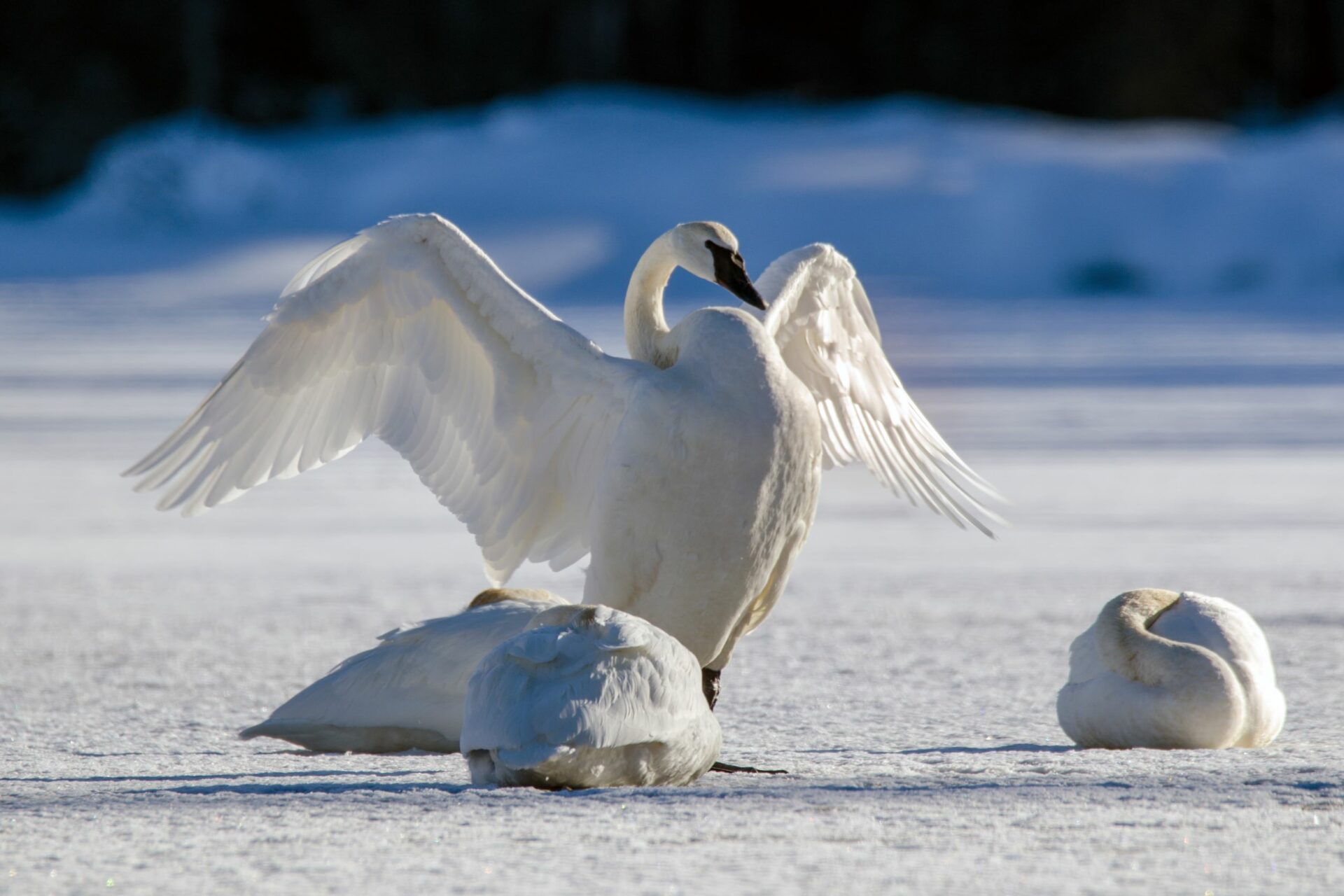

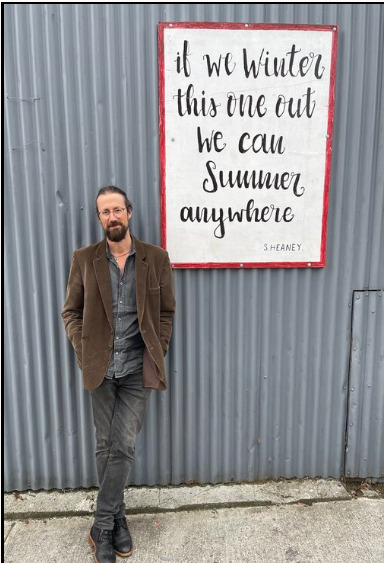
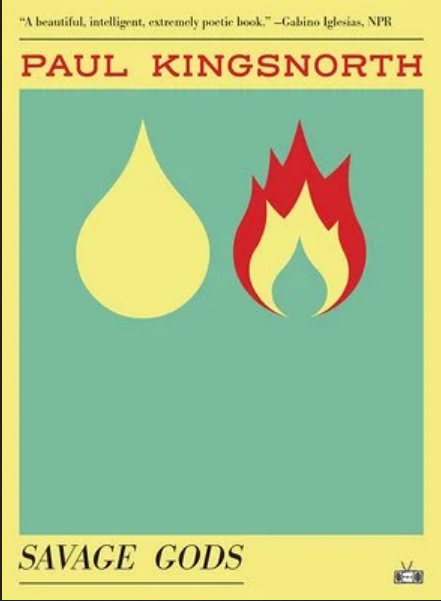
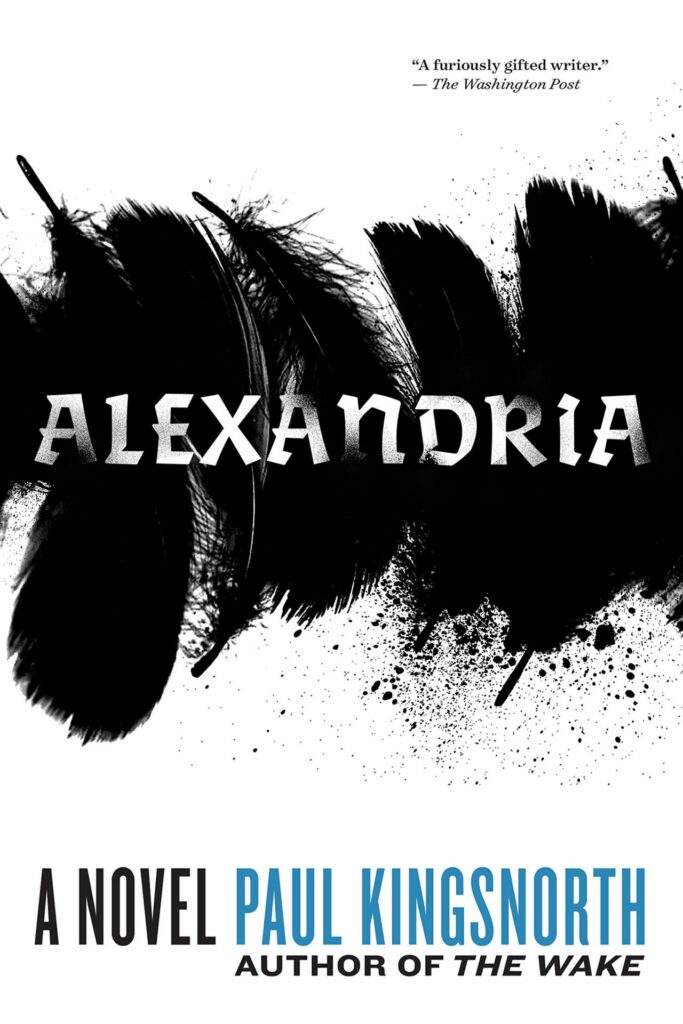
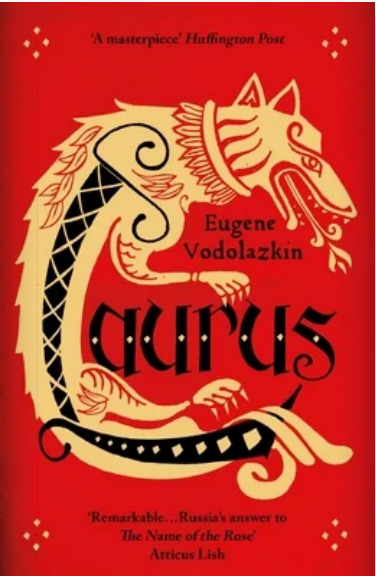


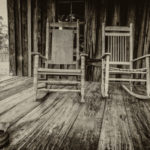

2 comments
Jon Cook
Haven’t commented on FPR in years (lots of pulls in other directions), but this is why I keeping popping in. Wonderful. Thanks.
Adam Smith
Wonderful interview, glad to see it here. Kingsnorth mentions many writers who are “guides to the something that’s coming.” I think he himself is becoming one of these guides.
Comments are closed.